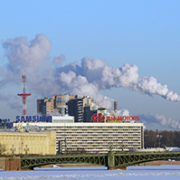Archive | Economics RSS feed for this section
Economics, Finance sector development, Industry and trade
 Economics, Governance and public sector management
Economics, Governance and public sector management
 Economics, Governance and public sector management, Industry and trade, Regional cooperation and integration
Economics, Governance and public sector management, Industry and trade, Regional cooperation and integration
 Economics, Finance sector development, Governance and public sector management, Industry and trade
Economics, Finance sector development, Governance and public sector management, Industry and trade
 Economics, Finance sector development, Governance and public sector management
Economics, Finance sector development, Governance and public sector management
 Economics, Finance sector development
Economics, Finance sector development
 Economics
Economics
 Economics, Environment, Industry and trade
Economics, Environment, Industry and trade
 Economics, Education, Finance sector development, Governance and public sector management
Economics, Education, Finance sector development, Governance and public sector management
 Economics, Finance sector development, Governance and public sector management
Economics, Finance sector development, Governance and public sector management

Young Small and Medium-Sized Enterprises and Bank Credit Denials: Evidence from Europe

It is widely accepted that small and medium-sized enterprises (SMEs) represent the backbone of most economies. Not surprisingly, the story is mostly the same across the globe. For instance, Yoshino and Taghizadeh-Hesary (2014) report that SMEs account for almost 98% of all enterprises in Asia, offering jobs to around 66% of the workforce. In the European Union, the data offer a similar picture. In fact, SMEs represent 99% of all non-financial enterprises and account, on average, for 67% of total employment (European Commission 2017). Overall, such figures undoubtedly highlight how pivotal SMEs are for the functioning of the real economy.
What Do Structural Economic Reforms Promise for the Future of Azerbaijan?

After the oil price crunch in mid-2014, Azerbaijan entered into a new stage of economic development. During 2004–2014, thanks to high oil prices, Azerbaijan achieved substantial growth rates, which were accompanied by improved social conditions and macroeconomic stability. Azerbaijan’s average annual growth rate during 2000–2013 of 11.3% played a key role in the improvement of the country’s international economic ranking.
Impact of Retaliatory Trade Enforcement Actions on the World Trade Organization and Trade Governance

The international regulatory instruments in international trade boast a remarkable story of evolving sophistication. Their transformation from voluntary export restraint agreements showed that the world trade system was poised to keep pace with rapidly expanding trade ties and diversifying supply chains. To keep the reins on an increasingly dynamic global trade system, the General Agreement on Tariffs and Trade (GATT) sought to formalize instruments that would help keep trade balanced and fair by isolating international trade from government intervention, in alignment with the economic thinking of the period: neoliberal convergence.
FDI and Its Impacts on Entrepreneurship and Informal Markets: A Double-Edged Sword?

Foreign direct investment (FDI) is attractive, especially for developing and emerging markets, as it brings new technologies and mitigates the constraints imposed by low domestic capital formation. Lawmakers enact various policies to make such investments attractive for foreigners, and businesses often actively seek foreign collaborators. India, for instance, under the present government, has been aggressive in seeking foreign investments through its “Make in India” campaign.
Will Financial Liberalization Trigger the First Crisis in the People’s Republic of China?

The People’s Republic of China (PRC) has been liberalizing its financial system for nearly 4 decades. While it now has a comprehensive financial system with a large number of financial institutions and large financial assets, its financial policies are still highly repressive. These repressive financial policies are now a major hindrance to the PRC’s economic growth (Huang and Wang 2011).
Managing financial globalization: A guide for developing countries

As cross-border capital flows rise relative to world gross domestic product (GDP), developing countries do not wish to miss the associated benefits. But at the same time, they are also anxious about avoiding the associated economic instability and distortions. What is the right strategy with regards to international capital flows? We can draw lessons based on the recent literature.
Opening-up in the upper middle-income stage: Implications from international experiences

After rapid economic growth lasting more than 30 years, the People’s Republic of China (PRC) has stepped into the upper middle-income stage. The country’s gross domestic product (GDP) per capita reached $6,416 (constant 2010 dollars) in 2015, equivalent to $13,400 in international dollars under purchasing power parity (constant 2011 international dollars).
International outsourcing, environmental costs, and welfare

In recent decades, amid the increasing trend of globalization, it has become prevalent in world trade that firms in some countries outsource intermediate and/or finished goods or services from other firms in foreign countries for the purpose of lowering production costs and increasing production efficiency.
Management quality and innovation

It is well recognized that innovation is an important ingredient in generating the competitive advantage and long-run growth of nations, ultimately affecting their economic development. Thus, there is considerable interest in the determinants of innovation, not only in the corporate sector but also among policy makers around the world and in Asia in particular.
Unconventional Monetary Policy in the Asian Financial Crisis

In a new paper, Unconventional Monetary Policy in the Asian Financial Crisis: Seeing the Crisis through Post-2008 Eyes, we reassess some of the policies central banks used during the Asian Financial Crisis of 1997–1998 in light of the responses of some advanced-economy central banks to the North Atlantic Financial Crisis of 2008. Public funding of bank recapitalizations in Thailand and the extraordinary purchase of equities in Hong Kong, China have elements of the unconventional monetary policy known as quantitative easing (QE) that has received so much attention in major advanced economies in recent years.


Search
Subscribe / Connect to Asia Pathways
Subjects
- Agriculture and natural resources
- Blog
- Capacity development
- Climate change
- Economics
- Education
- Energy
- Environment
- Finance sector development
- Gender
- Governance and public sector management
- Health
- Industry and trade
- Information and Communications Technology
- Infrastructure
- Miscellaneous
- Population
- Poverty
- Private sector development
- Regional cooperation and integration
- Sanitation
- Social development and protection
- Transport
- Uncategorized
- Urban development
- Video Blog
- Water
Recent Posts
- Artificial intelligence: A new driver for inclusive growth and development?
- Increasing trust in cross-border e-commerce and artificial intelligence
- Enhancing access to maternal and newborn healthcare in developing Asia
- Can electric vehicles lead the way to a sustainable future?
- Mitigating climate-related sovereign risk to accelerate action on the climate emergency




Recent Comments